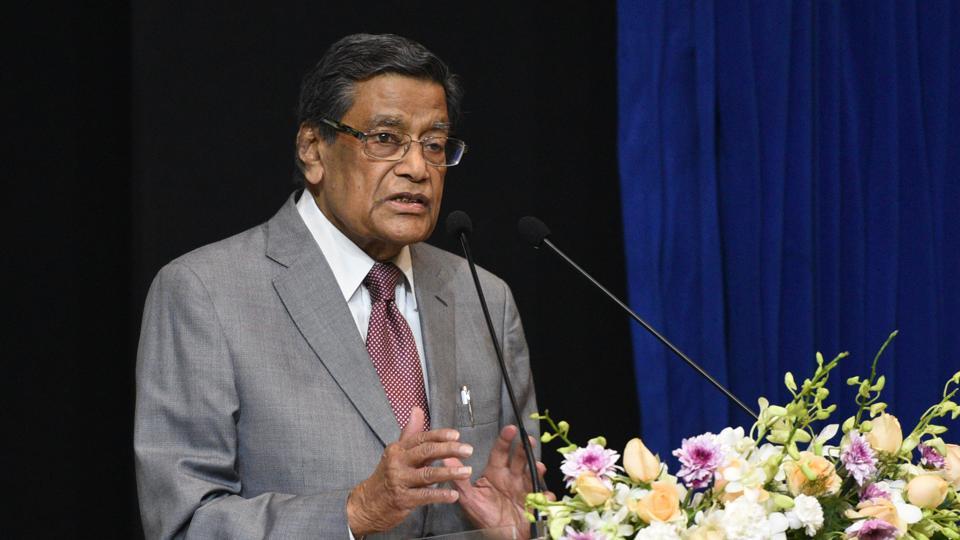EWS quota different from SC, ST, OBC reservation, says AG in Supreme Court
The 10% EWS quota was introduced in January 2019 through the 103rd amendment of the Constitution. Challenges to the amendment are being heard by a five-judge constitution bench which is looking at whether economic criteria can be the basis for reservation, and whether such reservation can exclude the backward sections of population, as there are poor among them, too.
People belonging to the other backward classes (OBCs), scheduled castes (SCs) and scheduled tribes (STs) are not entitled to reservation benefits under the 10% quota for economically weaker section (EWS) in the general category, attorney general KK Venugopal argued on Tuesday, telling the Supreme Court that these underprivileged classes have already been given benefits by way of affirmative action over the years, but the poor among the unreserved category will benefit for the first time from this law, which marks a “revolution”.

The 10% EWS quota was introduced in January 2019 through the 103rd amendment of the Constitution. Challenges to the amendment are being heard by a five-judge constitution bench which is looking at whether economic criteria can be the basis for reservation, and whether such reservation can exclude the backward sections of population, as there are poor among them, too. The court is also examining whether the law falls afoul of the 50% ceiling fixed by the Supreme Court in a benchmark 1992 order. That ceiling will be breached if 10% additional quota gets added to the reservation pool already occupied by 27% for OBC, 15% for SC and 7.5% for ST. On September 7, Venugopal argued that the 50% ceiling is not sacrosanct.
On Tuesday, he said the law which introduces Article 15(6) and Article 16(6) for reservation in admissions and jobs neither discriminates against backward classes of citizens nor violates the 50% limit on reservation.
Elaborating on this he added: “So far as SCs/STs are concerned, they have been loaded with benefits by way of affirmative action carved in stone in the Constitution.” The country’s top law officer highlighted the provisions in the Constitution providing exclusive reservation to SC/ST. These included quota for promotion in government jobs (Article 16(4A)), reservation in Panchayats (Article 243D), reservation in municipalities (Article 243T), reservation in Parliament (Article 330) and reservation in legislative assemblies (Article 332).
“If all these benefits have been given to them by virtue of their backwardness, will they give up on this and claim benefit under EWS quota?” Venugopal asked. “They are highly unequal vis-à-vis EWS for being in an advantageous position as regards affirmative action.”
As regards EWS, he said: “The 10% EWS quota for the poor among general category is a total revolution that is offered to them for the first time. It is different from reservation to SC/ST/OBC as it does not erode or eat into the benefits available to them.”
The bench headed by Chief Justice of India (CJI) Uday Umesh Lalit and comprising justices Dinesh Maheshwari, S Ravindra Bhat, Bela M Trivedi and JB Pardiwala posted the matter for Wednesday.
Venugopal said that the 50% rule was introduced by the top court in the 1992 Indira Sawhney judgment to create a balance so that 50% seats for general category remains undisturbed. “Question of exceeding 50% and hence violating the basic structure of Constitution will not arise since this reservation belongs to the 50% compartment for general category, which is different from the 50% compartment for backward.”
He further said, “This is not in addition to 50% reservation for backward classes and does not erode the benefits already provided to SC/ST/OBC. If at all there is discrimination, only the general category can come up and say why 10% is being given.”
He read out statistics from a Niti Aayog report on Multi-Dimensional Poverty Index to show the extent of poor among the general category. This report claimed that India had an estimated 350 million people belonging to EWS among the general category and the reserved section (SC/ST/OBC) taken together. To the argument raised by some of the petitioners that the poor among SCs/STs and OBCs should also be included under the 10% quota, Venugopal said: “The SC/ST and OBC constitute separate homogenous groups. Whole of them will be treated as backward and hence, the poor among them cannot be further segregated or subdivided.”
Over the past week, petitioners have questioned the EWS quota . They claimed that historically reservation has been provided to traditionally backward castes, tribes or classes comprising castes which were socially and educationally backward. Tamil Nadu argued against the EWS quota law and said that this reservation violates the 1992 Indira Sahwney judgment.
The bench asked some of the petitioners, “There are generations of people who have remained poor. There are families who have been kept out from the mainstream, out of education or employment opportunities due to their poverty. We have to examine this case from that angle.” The court clarified that at present, it will not examine the criteria of determining EWS but focus on the conceptual basis of whether EWS as a class can be provided reservation.
Last week, the top court indicated that there cannot be any fundamental wrong in providing reservation on economic basis when there are poor people who are not traditionally backward. Petitioner Youth for Equality represented by senior advocate Gopal Shankarnaraynan told the Court that EWS quota is a good starting point as it moves away from caste-based reservation. He said that EWS quota as a concept exists in matters of housing and providing admission in schools and thus, reservation based on economic criteria does exist.





